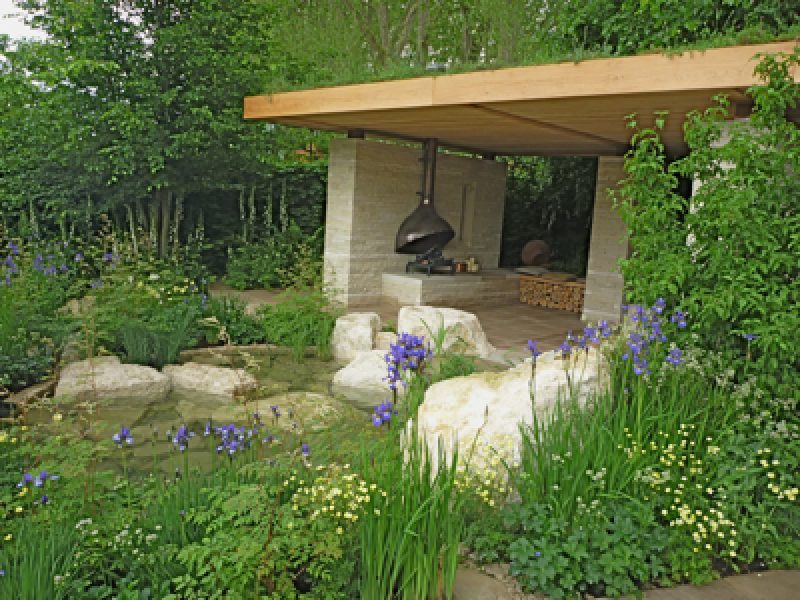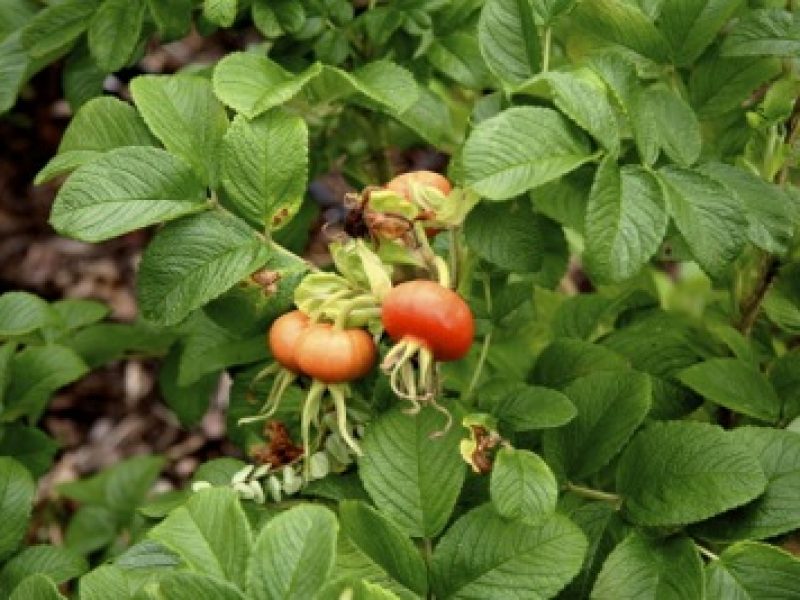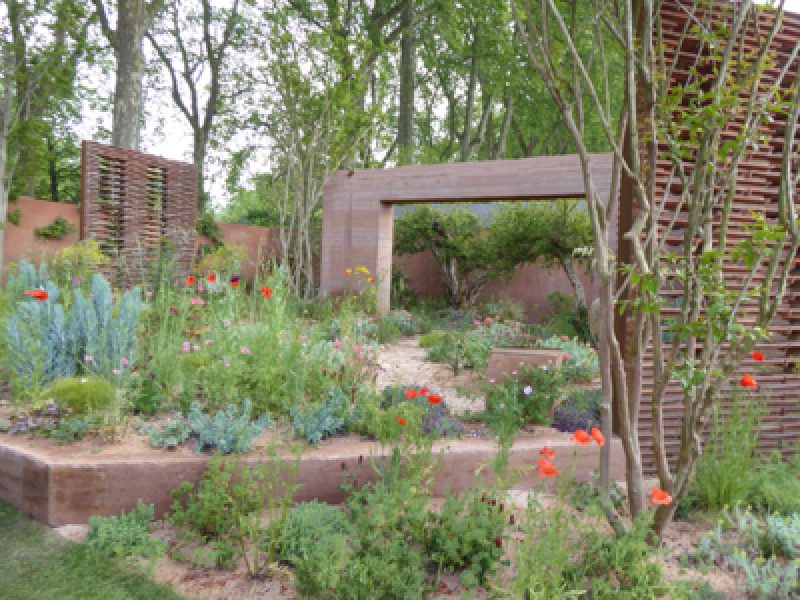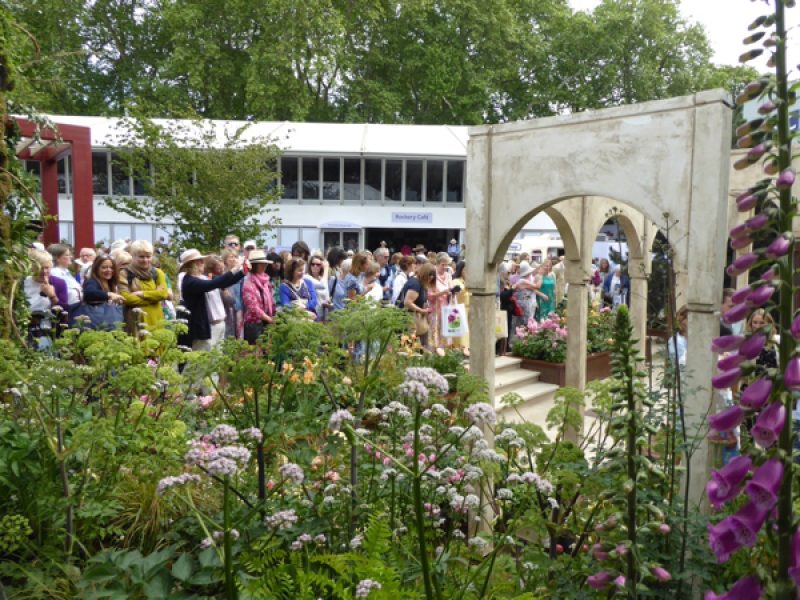On a recent visit to Kew Gardens in London (primarily to check out the Xstrata Treetop Walkway and catch some autumn colour), I was really pleased to also get to see the work of David Nash in the Gardens. Nash worked on site in the Wood Quarry at Kew from April to September this year, producing new work which is now on show in various sites around the Gardens until next April. Also on view are larger pieces from recent years.
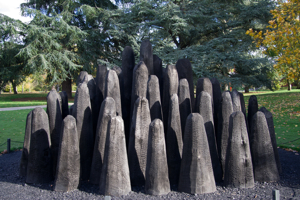
To be honest, I struggled with some pieces like Black Dome, and I think Nash’s charred work (which is carved before being partially burnt), if used in a domestic setting, might be a bit challenging to position! But realistically I doubt if any of these monumental pieces were ever intended for the domestic market.
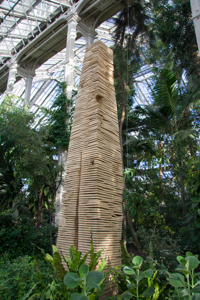
It was nice to see work hidden away in the traditional and charming (if slightly shabby) setting of the Temperate House. I loved the contrast between ‘Crack and Warp Column’ and the old ironwork structure of the building. And it’s no coincidence that the work was positioned to reflect that contrast – as you can imagine, all that was thought through very carefully. Putting the work indoors means that it changes over time as the air dries the wood (hence the reference to cracking and warping).
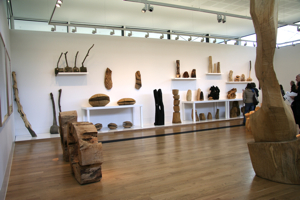
Working with a chainsaw, and using only wood from trees at Kew which have come to the end of their natural life, David Nash has made some really lovely new pieces, my favourite of which were the works on display in the Shirley Sherwood Gallery. They really go a long way to illustrate the beauty of bark and wood on a small scale.
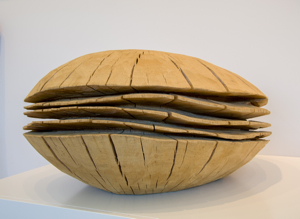
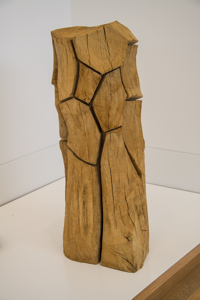
Given the number of diseases which are currently affecting so many varieties of trees – Oak, Horse Chestnut, Ash, Scots Pine to name a few – it seems fitting for an artist to be using wood from dying trees to create something long-lasting.
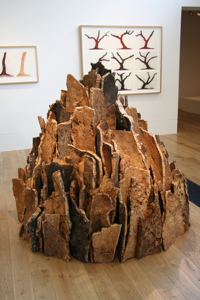
And whatever your feelings towards the individual pieces at Kew, Nash’s exhibition illustrates well what a bold statement and valuable focal point a large piece of art can make in the right setting. I highly recommend a visit.
www.kew.org

